Ukraine war day four: Russian Army enters country’s second-largest city as fighting continues
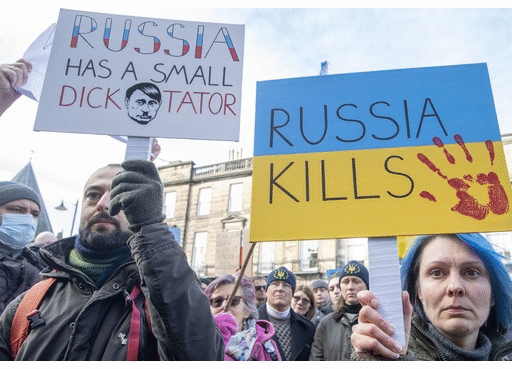
Russian troops have entered Ukraine’s second-largest city of Kharkiv and fighting is under way in the streets, Ukrainian authorities have said.
Oleh Sinehubov, head of the Kharkiv regional administration, said Ukrainian forces are fighting Russian troops in the city and asked civilians not to leave their homes.
Russian troops approached Kharkiv, which is located about 12.4 miles (20km) south of the border with Russia, shortly after Moscow launched its invasion of Ukraine on Thursday.
But until this morning, they had remained on its outskirts without trying to enter the city, while other forces rolled past, pressing their offensive deeper into Ukraine.
Videos posted on Ukrainian media and social networks showed Russian vehicles moving across Kharkiv and a light vehicle burning in the street.
Yesterday, US President Joe Biden has signed a memorandum to provide up to $600m (£448m) in “immediate military assistance” to Ukraine as Kyiv officials warned street fighting has begun against Russian forces in the city.
Ukraine’s president refused a US offer to evacuate him from Kyiv hours after the UK, US and the European Union announced plans to impose personal sanctions on President Vladimir Putin and his foreign minister Sergei Lavrov in response to the Kremlin assault on Ukraine.
The development comes after the Chinese government said that President Putin told President Xi that Russia is prepared to hold high-level talks with Ukraine.
Also, Russia announced a “partial restriction” of access to Facebook over the platform’s ban on Kremlin-backed media while the Council of Europe has suspended Russia from the continent’s leading human rights organisation.
The announcement comes as Russian troops are bearing down on Ukraine’s capital, with gunfire and explosions resonating ever closer to the government quarter, in an invasion of a democratic country that has fuelled fears of wider war in Europe.
Amid growing casualties — including shelling that sliced through a Kyiv apartment building, bridges and schools — were increasing signs that Moscow may be seeking to overthrow Ukraine’s government, in Vladimir Putin’s boldest effort yet to redraw the world map and revive Moscow’s Cold War-era influence.
Western leaders held an emergency meeting and Ukrainian President Volodymyr Zelensky pleaded for international help.
US Defence Secretary Lloyd Austin told lawmakers on a phone call early this morning that Russian mechanised forces that entered from Belarus were about 10 to 20 miles from Kyiv, according to a person familiar with the call.
“They’re killing people and turning peaceful cities into military targets. It’s foul and will never be forgiven.”
Ukraine’s president Zelensky
Zelensky said his government has information that “subversive groups” were encroaching Kyiv as US Secretary of State Antony Blinken said the city “could well be under siege”.
Mr Kuleba said in a tweet just before 4am on Friday that “horrific rocket strikes” hit Kyiv in an attack he compared to the city’s 1941 shelling by Nazi Germany.
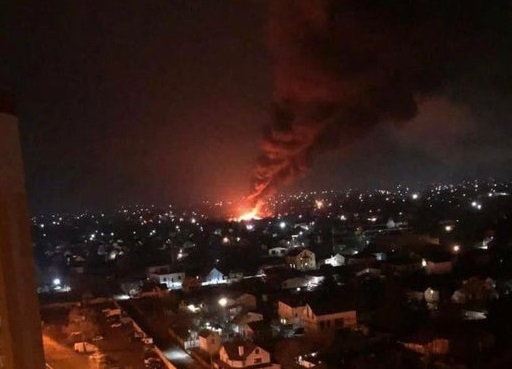
Military mobilisation
Earlier, Mr Zelensky ordered a full military mobilisation to counter the Russian invasion which he said had led to 137 deaths.
In a decree issued late last night, he said the the mobilisation would last 90 days.
He tasked the military’s general staff with determining the number of people eligible for service and the number of reservists as well as the order of the call-up.
He called those that had lost their lives in the invasion “heroes” and also said hundreds more have been wounded.
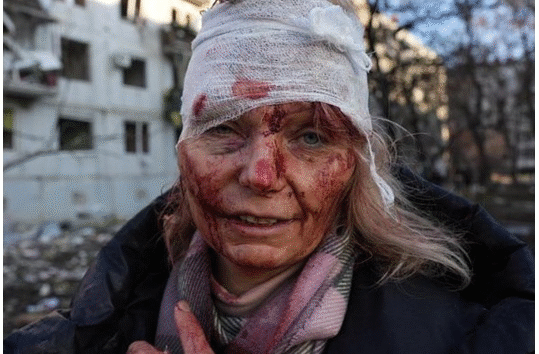
Mr Zelensky said that despite Russia’s claim it is attacking only military targets, civilian sites also have been struck.
The UN Security Council will on Friday vote on a resolution that would condemn Russia’s military aggression against Ukraine “in the strongest terms” and demand an immediate halt to Russia’s invasion and the withdrawal of all Russian troops.
Russia earlier launched a wide-ranging attack on the eastern European country, hitting cities and bases with air strikes or shelling, as civilians piled into trains and cars to flee.
Ukraine’s government said Russian tanks and troops rolled across the border in a “full-scale war” that could rewrite the geopolitical order and whose fallout has already reverberated around the world.
“Putin’s assault on Ukraine is barbaric, unjustified and shows a callous disregard for human life.”
UK foreign Secretary Liz Truss this morning
The president said all border guards on Zmiinyi island in the Odesa region were killed on Thursday. Ukraine’s border guard service earlier in the day reported that the island was taken by the Russians.
Ukrainian officials said they had lost control of the Chernobyl nuclear site, where forces had waged a fierce battle with Russian troops and there are concerns staff have been taken hostage
The White House has said the reports of hostages are “credible”.
ICC prosecutor monitoring the situation
The prosecutor of the International Criminal Court has said he is “closely following recent developments in and around Ukraine with increasing concern”.
Karim Khan issued a statement on Twitter while on a visit to Bangladesh, where he is investigating crimes against Myanmar’s Rohingya minority.
Mr Khan said he alerted “all sides conducting hostilities on the territory of Ukraine” that Ukraine has accepted the court’s jurisdiction.
He said that “any person who commits such crimes, including by ordering, inciting or contributing in another manner to the commission of these crimes may be liable to prosecution before the court”.
‘Consequences you have never seen’
The Russian Defence Ministry said its ground forces have moved into Ukraine from Crimea, the first confirmation from Moscow that its ground forces have moved in, advancing towards the city of Kherson, north west of Crimea.
In unleashing Moscow’s most aggressive action since the Soviet invasion of Afghanistan in 1979, President Vladimir Putin deflected global condemnation and cascading new sanctions – and chillingly referred to his country’s nuclear arsenal.
He threatened any foreign country attempting to interfere with “consequences you have never seen”.
Large explosions were heard in the capital and in other cities on the first day of the invasion, and people massed in train stations and took to roads, as the government said the former Soviet republic was seeing a long-anticipated invasion from the east, north and south.
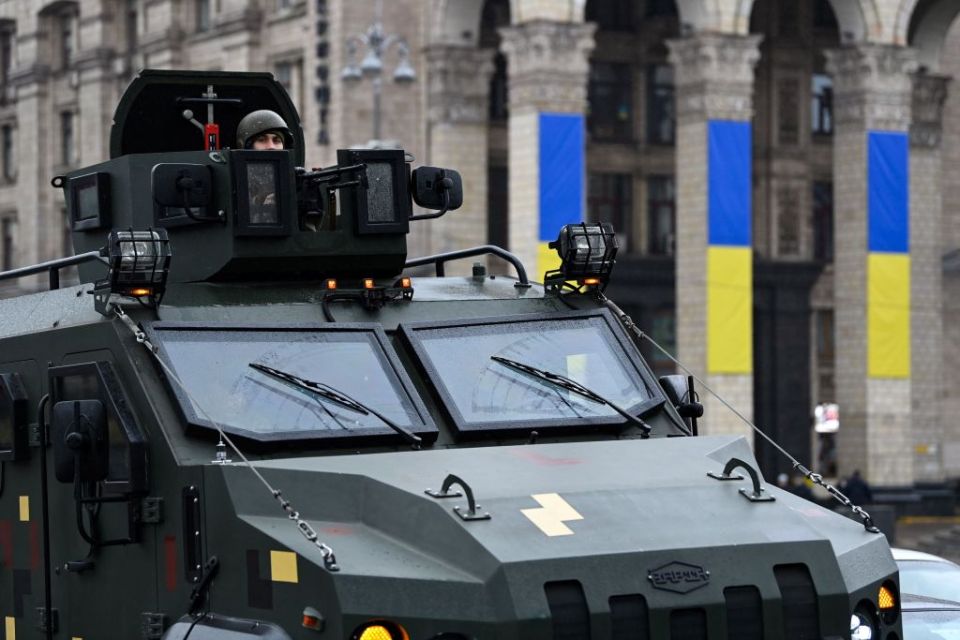
The chief of the Nato alliance said the “brutal act of war” shattered peace in Europe, joining a chorus of world leaders who decried the attack, which could cause massive casualties, topple Ukraine’s democratically elected government and upend the post-Cold War security order.
The conflict was already shaking global financial markets – stocks plunged and oil prices soared amid concerns that heating bills and food prices would skyrocket.
Condemnation rained down not only from the US and Europe, but from South Korea, Australia and beyond – and many governments readied new sanctions.
Even friendly leaders such as Hungary’s Viktor Orban sought to distance themselves from Mr Putin.
Mr Zelensky cut diplomatic ties with Moscow and declared martial law.
“As of today, our countries are on different sides of world history,” Mr Zelensky tweeted.
“Russia has embarked on a path of evil, but Ukraine is defending itself and won’t give up its freedom.”
His adviser Mykhailo Podolyak said: “A full-scale war in Europe has begun… Russia is not only attacking Ukraine, but the rules of normal life in the modern world.”
While some nervous Europeans speculated about a possible new world war, the US and its Nato partners have so far shown no indication they would join in a war against Russia.
They instead mobilised troops and equipment around Ukraine’s western flank – as Ukraine pleaded for defence assistance and help protecting its airspace.
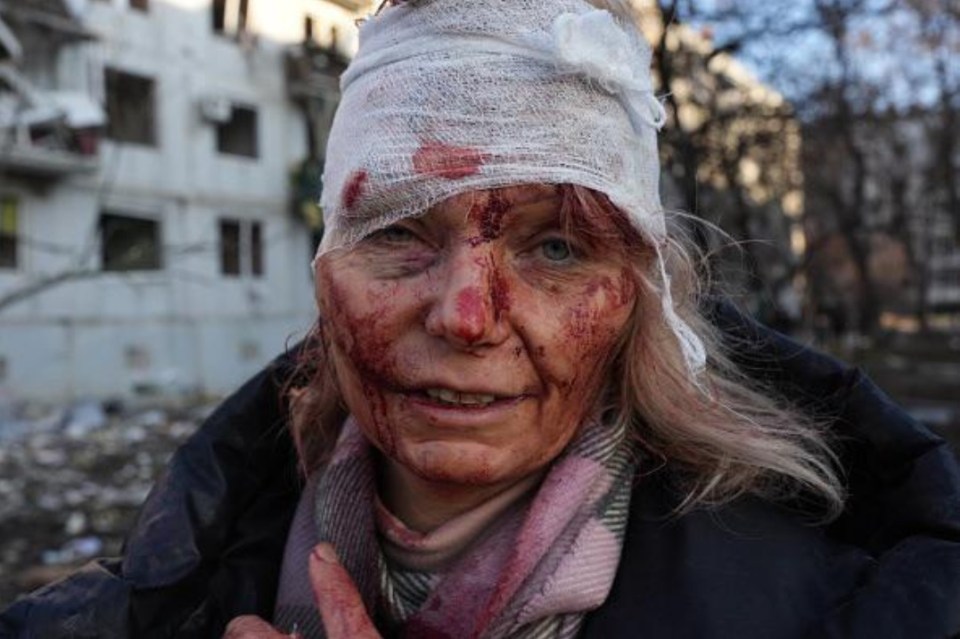
Nato mulling next steps
Nato allies prepare to determine the West’s next steps against the Kremlin.
The Ukrainian foreign minister, Dmytro Kuleba, said in a tweet just before 4am on Friday that “horrific rocket strikes” hit Kyiv in an attack he compared to the city’s 1941 shelling by Nazi Germany.
“Last time our capital experienced anything like this was in 1941 when it was attacked by Nazi Germany,” he said.
“Ukraine defeated that evil and will defeat this one. Stop Putin. Isolate Russia. Sever all ties. Kick Russia out of everywhere.”
Dmytro Kuleba
Meanwhile, Ukrainian President Volodymyr Zelensky said the government had information that “subversive groups” were encroaching on the city, as US Secretary of State Antony Blinken said Kyiv “could well be under siege”.
US officials believe the action is an attempt by Mr Putin to dismantle Ukraine’s government and replace it with his own regime.
Leaders of the 30 Nato allied nations will meet on Friday, US President Joe Biden confirmed, as they come under pressure to go even further than sanctions already announced to hit the Kremlin after what Boris Johnson described as a “dark day in the history of our continent”.
Invasion so far
Russian forces launched a full-scale invasion in the early hours of Thursday, thought to be Moscow’s most aggressive action since the Soviet invasion of Afghanistan in 1979.
By the end of the day, the Ukrainian government said 137 civilians and military personnel had been killed.
However, the UK’s Ministry of Defence (MoD) said it is “unlikely” Russia achieved its planned objectives for the first day of its military action in Ukraine, crediting “fierce resistance” from the Ukrainian forces.
The MoD said in a statement just after 1am: “The Ukrainian Armed Forces have reportedly halted Russia’s advance towards Chernihiv. Fighting probably continues on the outskirts of the city.
“It is unlikely that Russia has achieved its planned Day 1 military objectives. Ukrainian forces have presented fierce resistance across all axes of Russia’s advance.”
Earlier, the country’s President Volodymyr Zelensky ordered a full military mobilisation lasting 90 days.
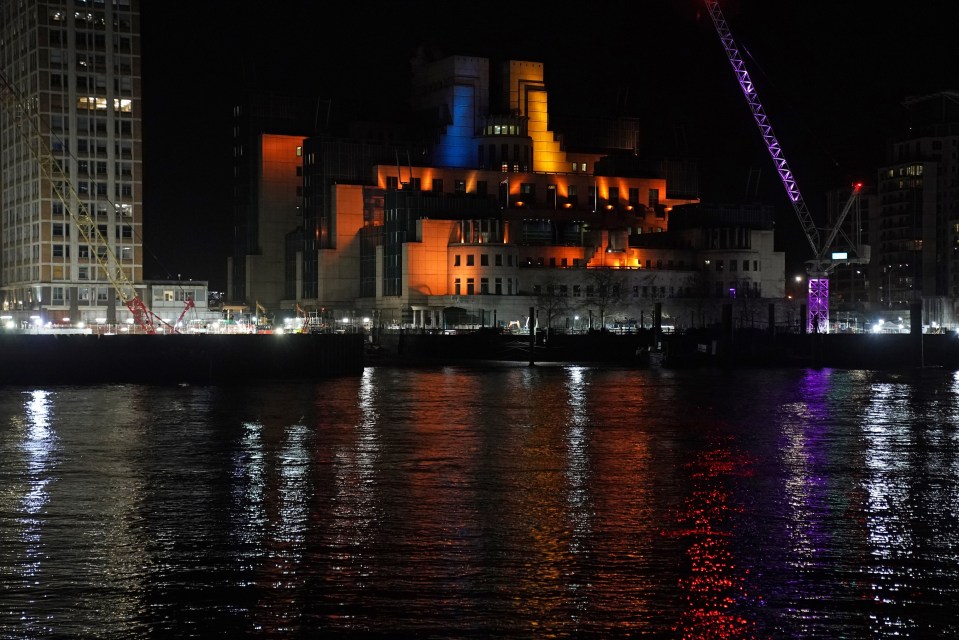
Sanctions
Mr Johnson told his Cabinet on Thursday night that the UK could be proud of its role in supporting Ukraine, after the Prime Minister announced the “largest and most severe” package of sanctions Russia has ever faced to punish Mr Putin, whom he labelled a “blood-stained aggressor”.
Among the new UK sanctions introduced were measures to hit five further oligarchs, including the Russian president’s former son-in-law, and to target more than 100 businesses and individuals.
Mr Johnson said he was sanctioning “all the major manufacturers that support Putin’s war machine”, will ban Aeroflot from touching down planes in the UK and will freeze the assets of all major Russian banks, including immediately against VTB.
In the US, Mr Biden also announced extra sanctions to target Russian banks, oligarchs and high-tech sectors, with more troops deployed to Germany to bolster Nato.
“Putin is the aggressor,” Mr Biden said. “Putin chose this war, and now he and his country will bear the consequences.”
He said: “Tomorrow, Nato will convene a summit – we’ll be there – to bring together the leaders of 30 allied nations and close partners to affirm our solidarity and to map out the next steps we will take to further strengthen all aspects of our Nato alliance.”
EU measures
A package of further EU sanctions was announced by European Commission President Ursula von der Leyen early on Friday following a special meeting of the EU Council.
She wrote on Twitter: “First, this package includes financial sanctions, targeting 70% of the Russian banking market and key state owned companies, including in defence.
“Second, we target the energy sector, a key economic area which especially benefits the Russian state. Our export ban will hit the oil sector by making it impossible for Russia to upgrade its refineries.
“These events mark the beginning of a new era. Putin is trying to subjugate a friendly European country. He is trying to redraw the map of Europe by force. He must and he will fail.”
European Commission President Ursula von der Leyen
“Third: we ban the sale of aircrafts and equipment to Russian airlines.
“Fourth, we are limiting Russia’s access to crucial technology, such as semiconductors or cutting-edge software.
“Finally: visas. Diplomats and related groups and business people will no longer have privileged access to the European Union.”
UN security council today
The UN Security Council will on Friday vote on a resolution that would condemn Russia’s military aggression against Ukraine “in the strongest terms”, and demand an immediate halt to Russia’s invasion and the withdrawal of all Russian troops.
Ukraine’s President described as heroes those who had died in the conflict.
In a video address he said Russia’s claim it was only attacking military targets as false and civilian sites also had been struck.
He said: “They’re killing people and turning peaceful cities into military targets. It’s foul and will never be forgiven.”
Mr Zelensky said all border guards on the Zmiinyi island in the Odesa region were killed on Thursday, while Ukraine also lost control of the Chernobyl nuclear site.
However local media reported troops had regained the Hostomel airport from Russian control.
The MoD also said it is “highly likely” Russian forces have captured the Chernobyl nuclear power plant.
A statement from the MoD said: “Russian forces have highly likely captured the Chernobyl nuclear power plant. Workers have reportedly been detained by Russian troops.”